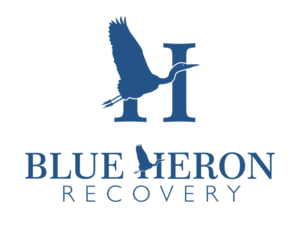When someone decides to seek help for addiction, one of the most important choices they’ll make is selecting the right type of treatment. Two common paths include residential treatment and intensive outpatient rehab. While both are effective in their own ways, they differ in structure, intensity, and lifestyle flexibility. At Blue Heron Recovery in San Antonio, TX, we believe that understanding these differences can help individuals and families make informed decisions about care.
What Is Intensive Outpatient Rehab?
Intensive outpatient rehab (IOP) is a structured treatment program that allows individuals to live at home while attending therapy sessions multiple days a week. It provides a high level of care without requiring full-time residential stays.
At Blue Heron Recovery, our intensive outpatient rehab program is designed for people who need strong support but also have the stability to remain in their home environment. This option works well for those stepping down from inpatient care or beginning recovery without requiring 24/7 supervision.
What Is Residential Treatment?
Residential treatment, also known as inpatient rehab, involves living at a treatment center full-time for a set period, usually 30, 60, or 90 days. Clients receive round-the-clock care in a structured setting, free from outside distractions or temptations. This environment is ideal for individuals with severe addiction or those at high risk of relapse.
Structure and Flexibility
One of the major differences between intensive outpatient rehab and residential programs is the level of structure. Residential treatment is fully immersive, with scheduled activities, therapy sessions, and monitored living arrangements. There is little room for outside interaction, and clients remain within the treatment facility throughout their stay.
In contrast, intensive outpatient rehab offers more flexibility. Clients attend treatment sessions during the day or evening and return home afterward. This structure allows them to maintain family obligations, work responsibilities, or school commitments while receiving focused care. For many, this balance is what makes recovery sustainable.
Cost Considerations
Cost is another factor when comparing the two options. Residential treatment typically involves higher expenses due to meals, lodging, and 24-hour staff support. While it can be life-changing for those in need of intensive care, it’s not always financially accessible for everyone.
Intensive outpatient rehab is often more affordable because clients do not stay overnight. Many insurance plans cover IOP services, making it a more practical choice for individuals with moderate addiction or those who cannot take extended time away from daily life.
Level of Supervision and Support
In residential treatment, supervision is constant. Medical professionals, counselors, and support staff are available 24/7 to address cravings, emotional challenges, or emergencies. This level of support is essential for people with co-occurring disorders or severe dependency.
Intensive outpatient rehab also offers strong support, but on a more scheduled basis. Clients typically attend treatment three to five days per week for several hours each day. While they are not monitored outside of those sessions, they receive consistent counseling, group therapy, and skill-building support that helps them navigate real-world challenges.
Who Is a Good Fit for IOP?
Intensive outpatient rehab is well-suited for individuals who:
- Have completed a residential program and are ready to step down
- Are beginning treatment with mild to moderate addiction symptoms
- Have a stable home environment and strong outside support
- Are motivated to maintain sobriety but need guidance and structure
At Blue Heron Recovery, we carefully assess each person to ensure that intensive outpatient rehab is the right level of care. We never take a one-size-fits-all approach—your treatment plan will reflect your unique needs.
Who Benefits from Residential Programs?
Residential treatment may be the better choice for people who:
- Are facing severe or long-term substance abuse
- Need medical detox before beginning therapy
- Lack a supportive or safe home environment
- Have experienced multiple relapses
Due to the constant care and structured surroundings, residential treatment can help individuals fully detach from triggers and build new routines before re-entering everyday life.
Therapeutic Approaches in Both Settings
Both residential and intensive outpatient rehab programs use evidence-based therapeutic techniques such as:
- Cognitive Behavioral Therapy (CBT)
- Dialectical Behavior Therapy (DBT)
- Trauma-informed care
- Family therapy
- Relapse prevention strategies
At Blue Heron Recovery, whether you’re in our residential care or intensive outpatient rehab, you’ll work with experienced therapists who understand addiction, mental health, and the road to long-term recovery.
Maintaining Independence vs. Total Immersion
Some people thrive in environments where they can continue living at home while applying recovery tools in real time. That’s where intensive outpatient rehab shines. It allows clients to test their coping skills in daily life and then process their experiences with their support team.
Others may need to fully disconnect from unhealthy environments to build a new foundation. That’s the strength of residential care. It gives people space to reset and heal deeply, away from stressors and temptations.

Transitioning Between Levels of Care
A great advantage of choosing a facility like Blue Heron Recovery is that we offer both residential and intensive outpatient rehab. Many of our clients begin with residential care and transition to IOP as they become more stable and confident. This continuity allows for a smoother recovery process and ensures consistent support.
If you’re unsure which level of care you need, we can help. Our team will guide you through an assessment and walk you through your options, enabling you to make an informed decision that suits your lifestyle, goals, and clinical needs.
Long-Term Recovery and Aftercare
Sustained recovery requires long-term planning. Whether you start with residential care or intensive outpatient rehab, we’ll help you create an aftercare plan that supports sobriety long after treatment ends. This may include ongoing counseling, peer support groups, wellness activities, and relapse prevention strategies.
We believe that recovery is not a one-time event. It’s a lifelong journey. That’s why our care doesn’t stop when your program ends.
Why Blue Heron Recovery?
At Blue Heron Recovery, we combine clinical expertise with compassion. Our San Antonio team is dedicated to helping individuals find the treatment path that’s best for them. We don’t just treat addiction—we treat the whole person.
Whether you choose residential care or intensive outpatient rehab, you can trust that you’ll be supported every step of the way by professionals who truly care.
Contact Us Today
No matter where you are in your recovery journey, Blue Heron Recovery is here to help. If you think intensive outpatient rehab might be the right fit, or if you’re still deciding between IOP and residential care, we’re ready to guide you.
Take the first step today. We encourage you to get started on your road to recovery and let our team walk with you through the next chapter of healing and growth.
Blue Heron Recovery is located in San Antonio, TX. To speak with someone now, call us at (210) 588-0508.





